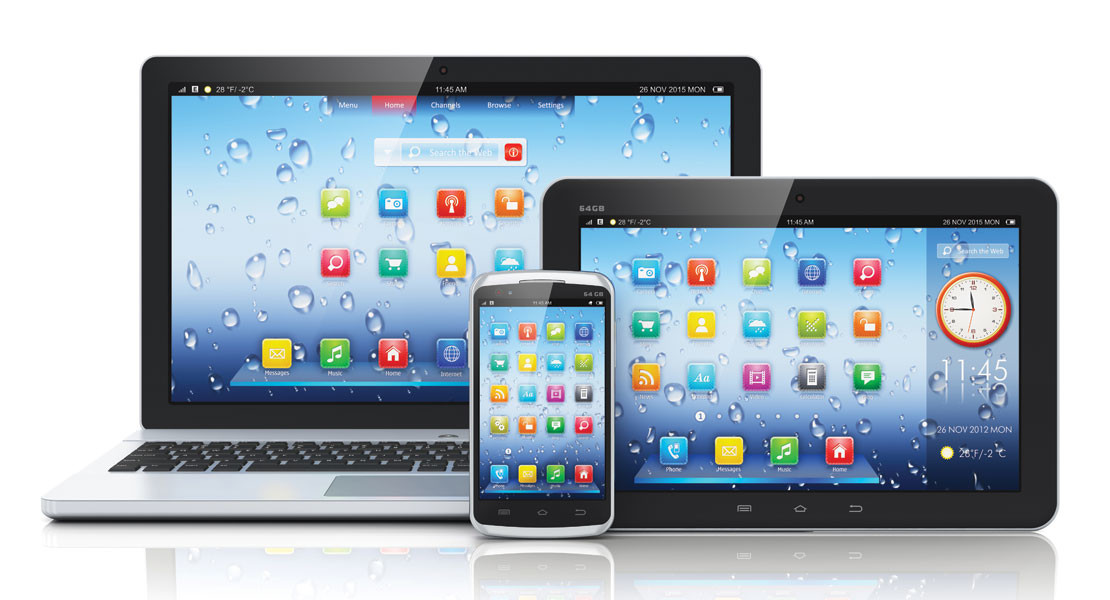Disconnecting in a Connected World

Do you check your email before you’ve gotten out of bed? Do you have a Pavlovian response when your phone bings, buzzes or beeps? Have you interrupted a conversation, an intimate moment, or a family meal with real people because there’s a new post on social media?
If this sounds like you (and no judgment here – this is about awareness!), perhaps you’re a good candidate for what is referred to as a ‘digital detox’ – disconnecting yourself from technology.
Now, don’t get me wrong: technology is a wonderful thing. I am amazed at what just my 2-year old iPhone can do. This comes from a person who was excited to take an electric typewriter to college (with self-correcting tape built in)! I love that I can FaceTime with my nieces and nephews who don’t live close by, and get practically any question answered using the internet. However, there are drawbacks to consider as well. This is why it may make sense to limit our use of technology.
A Kansas State University study discovered although we may resist it, we really do need down time after work to mentally recharge for the next day. “Competition in the workplace is getting fierce,” researcher Young Ah Park said. “People may worry about job security, want to increase their salary or advance in their career, so they feel they have to be more dedicated to their work. They show that by being available outside of normal work hours through communication and information technologies.” Drawing a line between work and home life not only benefits you, but it may benefit your employer, too, since, you’ll be coming back to work the next day relaxed and recharged.
Some Ideas on Disconnecting
Lighten the Morning Routine.
Get up, showered, dressed and eat without looking at your technology. If you need to check email before you head in the office, wait until you’re about to walk out the door. Another idea: move the phone charging station out of the bedroom.
Reclaim the Weekend.
Just because a work email comes in after business hours, unless you’re on-call or a volunteer firefighter, it’s likely you don’t actually ‘need’ to respond until normal business hours. If you reply to your boss on a Saturday or Sunday, you’re setting the expectation that this is permitted.
Defend Your Personal Time.
Use the-out-of-office notification setting on your work email and resist the urge to respond to emails the night before your scheduled return. If you are a leader or manager, you are setting an example. If you value your personal time, so will they.
Force Yourself Off the Grid.
If you travel for work, deliberately do not open your laptop on the plane. Take a vacation to places with limited or no internet service. While not always a feasible option, occasionally go “off the grid,” and leave technology behind. Imagine how refreshed and energized you’ll feel.
Engage in Incompatible Activities.
Want an easy solution? Add activities to your schedule where you can’t have a phone in your hand. Three favorites are biking, hiking and working out. Not only are these good for you, they are ways to de-stress and really, really tough to do with electronic devices.
Limit Yourself to Free Up Time.
Reduce your dependence on social media, and the need for checking status updates. Only check Facebook every other day, vs. several times a day. Check your email at specific times each day. Turn off the instant notification which makes your phone buzz, beep or vibrate when anything new comes in. You’ll be surprised how much time you have for things which are actually important.
Most Importantly: Be Truly Present in Your Life.
When you are on your phone (tweeting, Instagramming, Facebooking, texting and emailing) and others are near, you are not fully present in the real world. Your non-verbals let everyone know you are elsewhere, automatically signaling they are less important than whatever is happening on your screen.
In a 2012 Time magazine article amusingly titled “Is Your Cell Phone Making You a Jerk?,” it was suggested that humans have a fundamental need to connect with others. However, if that need is met via a cellphone, it then naturally reduces our need to feel empathy or helping behavior toward others.
Think of your phone as a physical (and emotional) barrier between you and your friends and family. You remember them – those people with annoyed looks on their faces! Learn to put the phone down, even deliberating saying “I’m going to turn this off / put this away so I can focus on us.” Just watch for the looks of appreciation you’ll get. You are putting the real, live people as your priority. You remember, like in the good ol’ days when people had to have real conversations with each other.
Are you ready to cut the cord? Even if it’s for small blocks of time, just imagine the benefits: you’ll recharge your mind, improve your mood, be more ‘present’ and even make room for new opportunities you’d likely have missed if you were glued to your screen. What have you got to lose?















